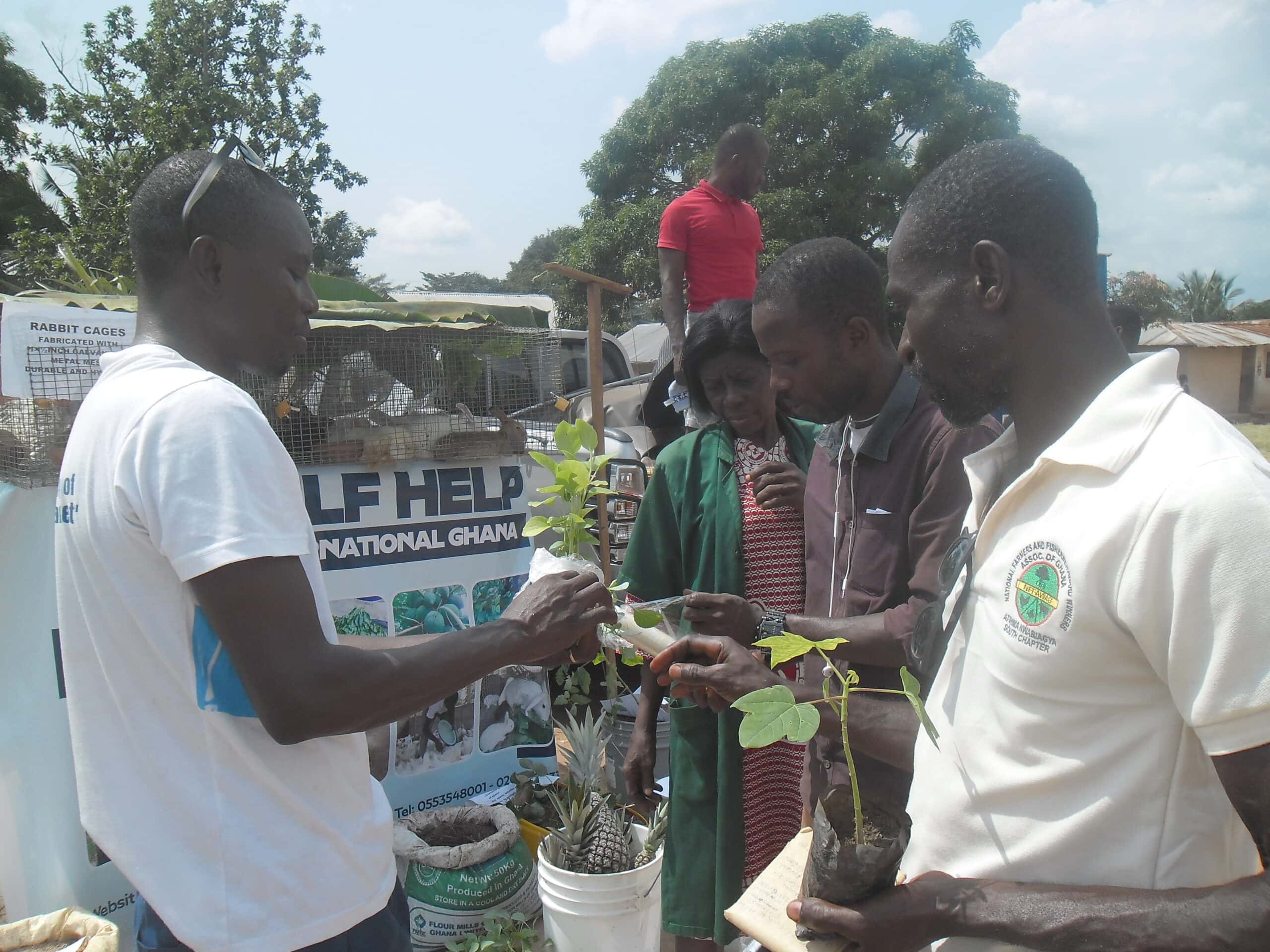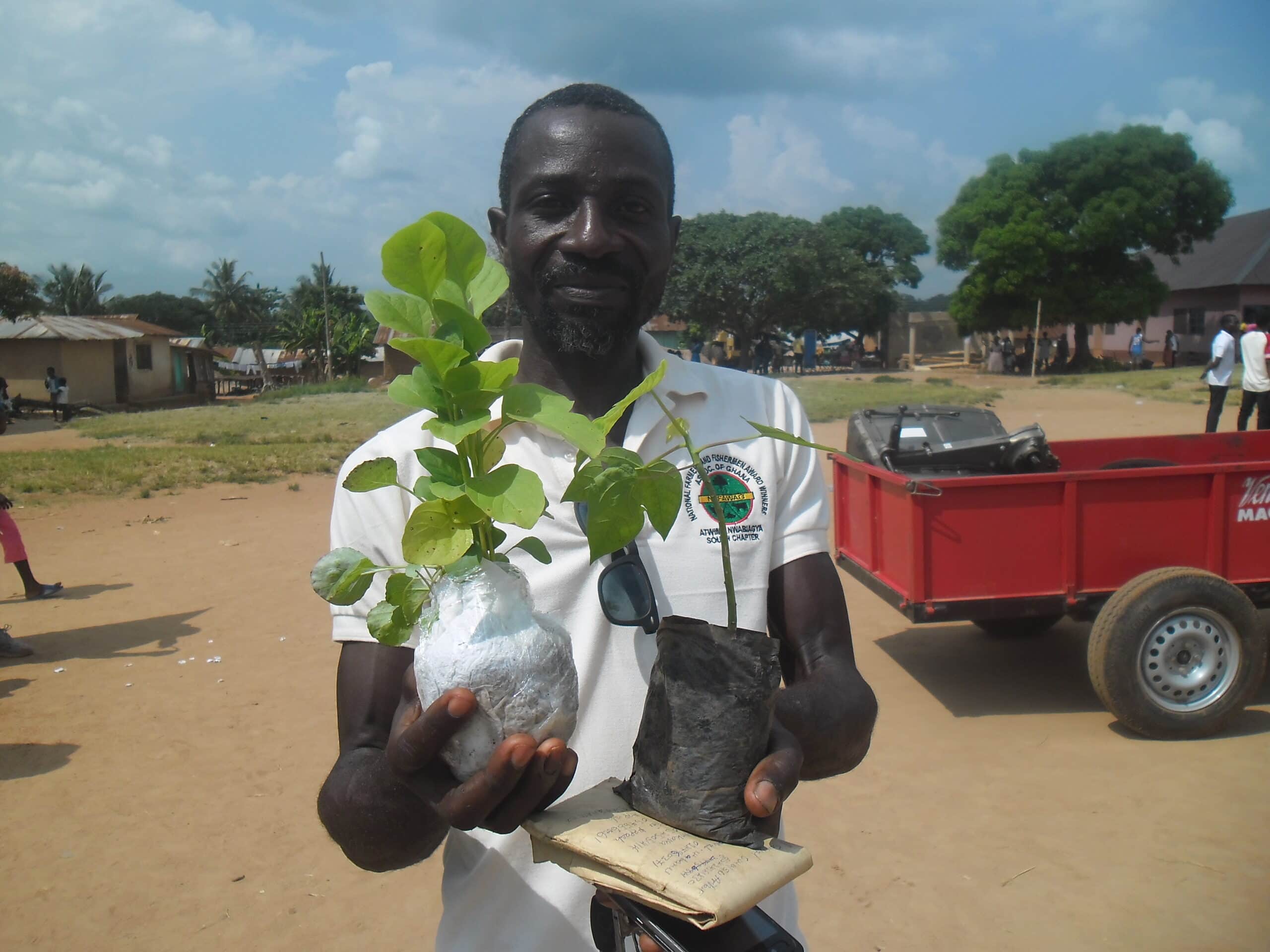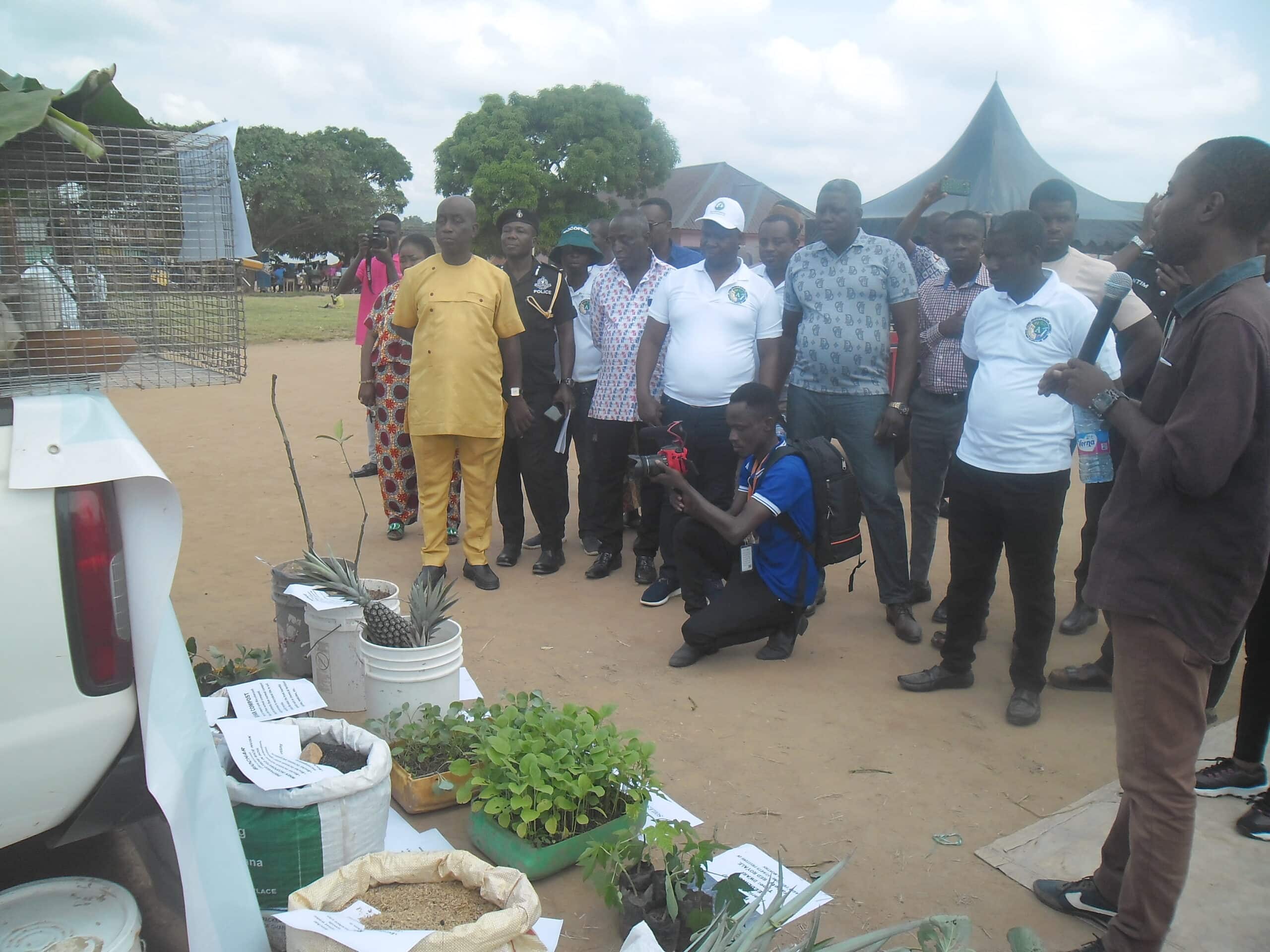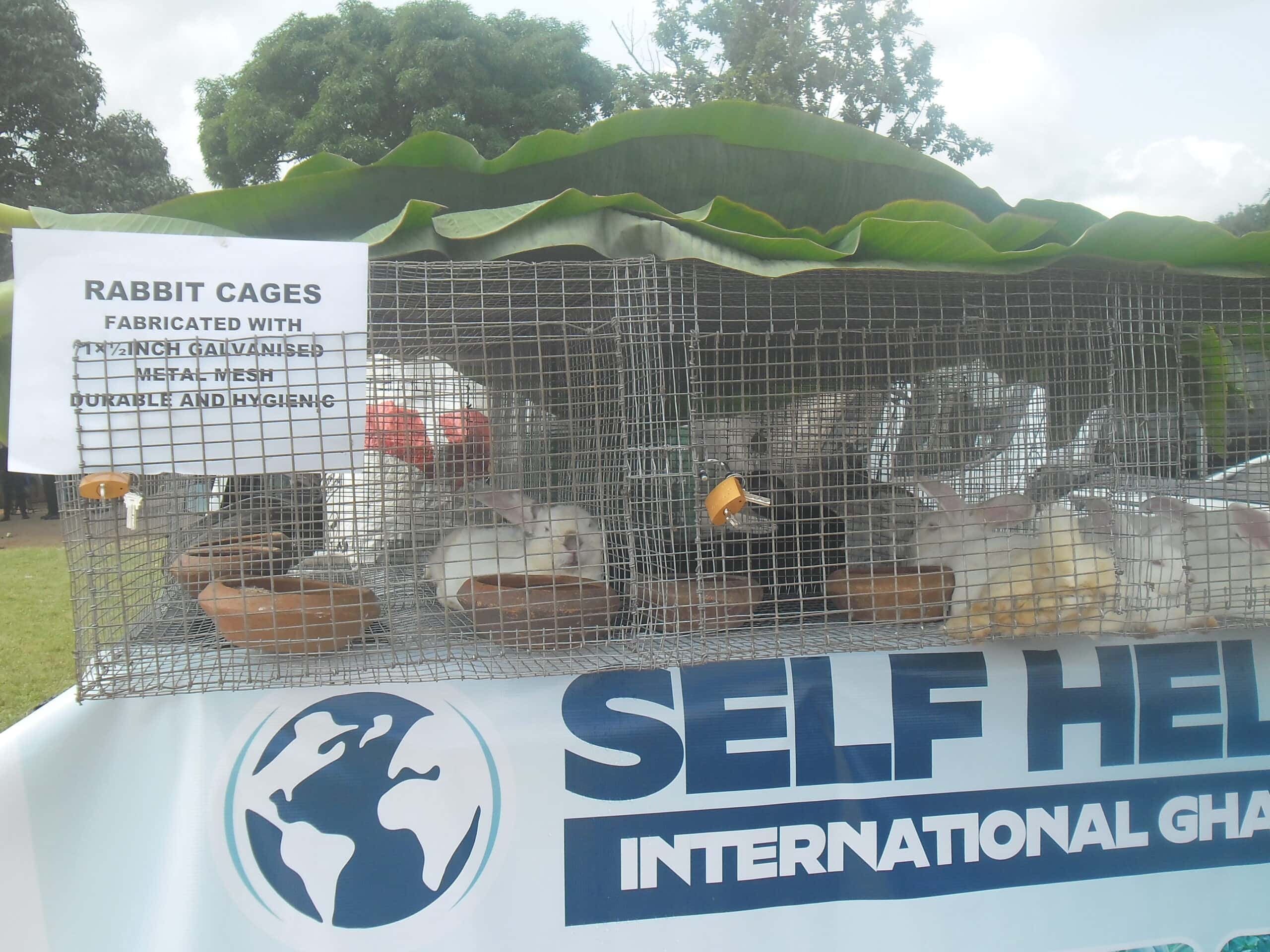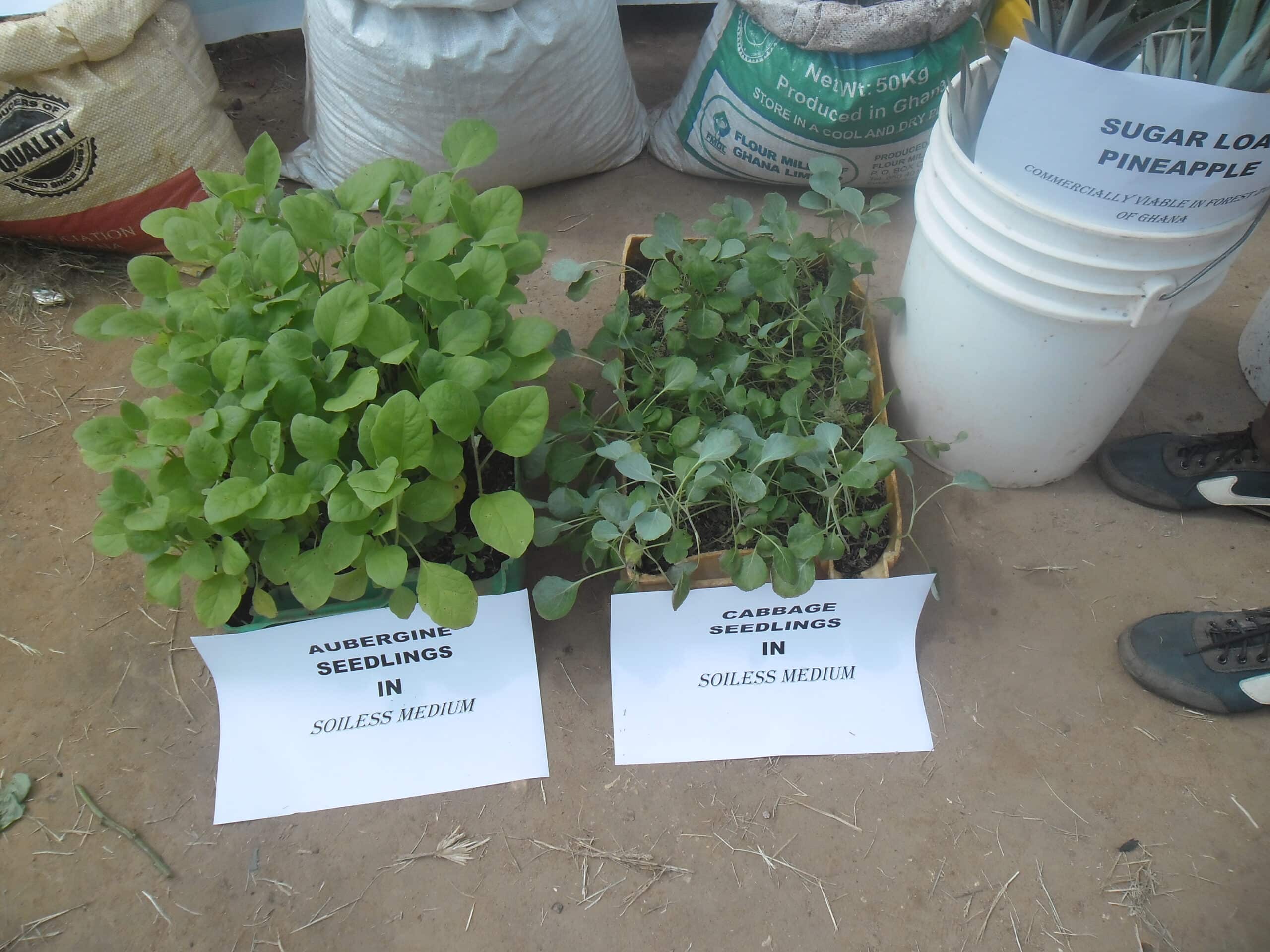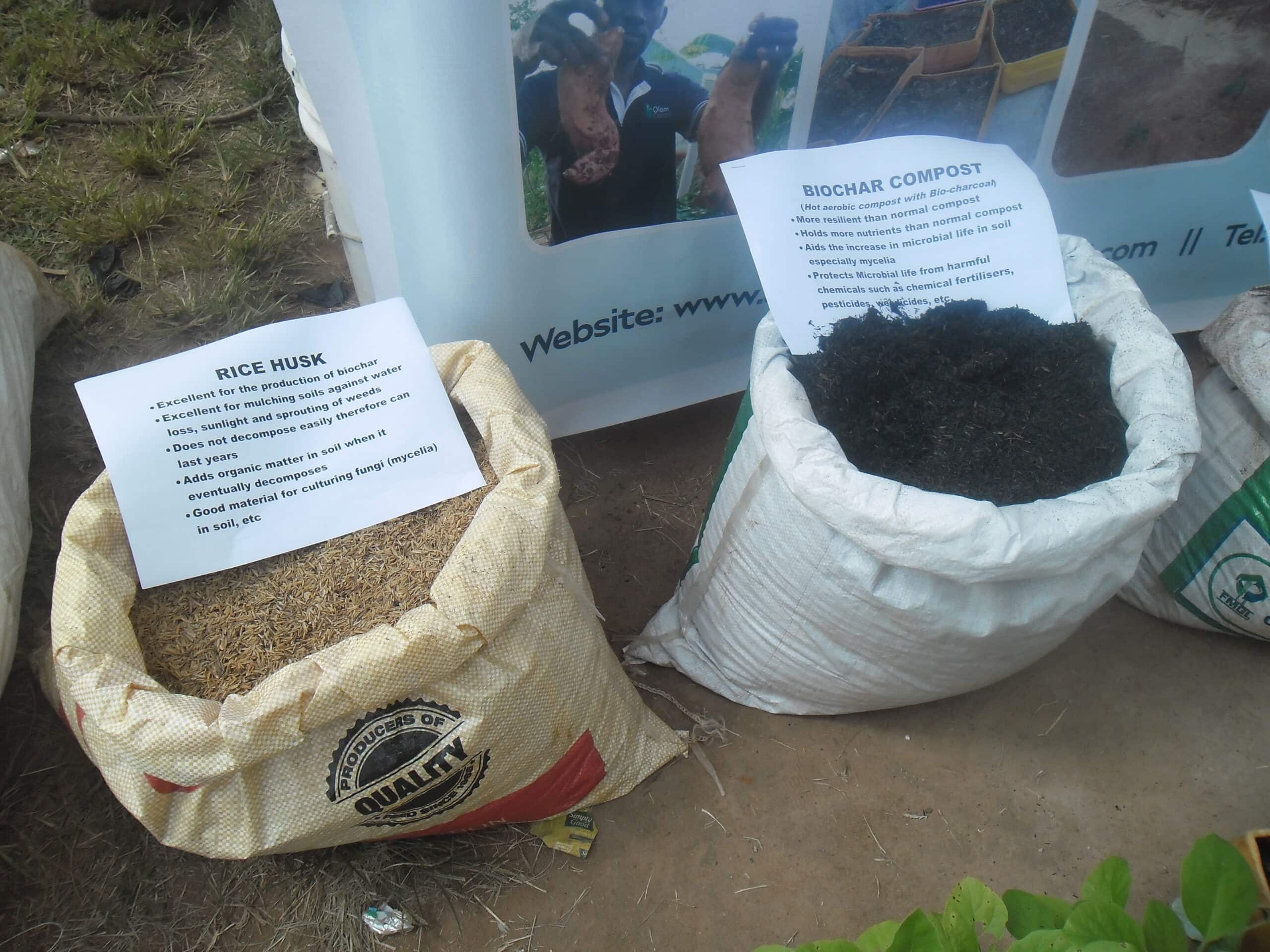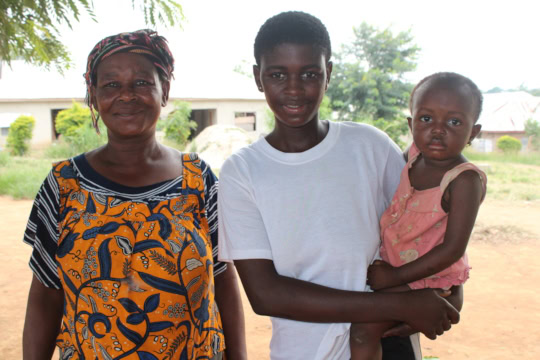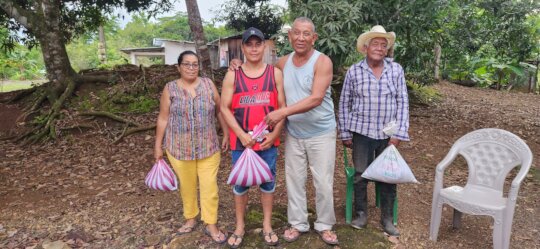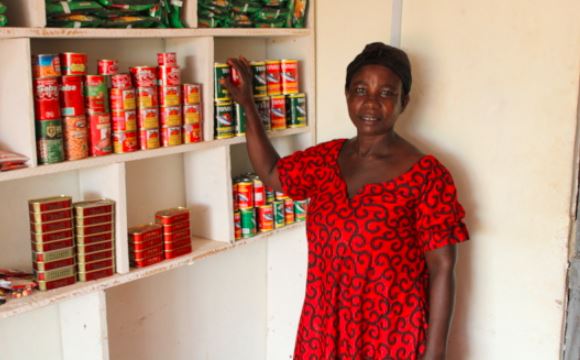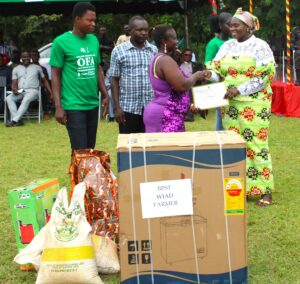Self-Help Participates in Ghana Farmers Day
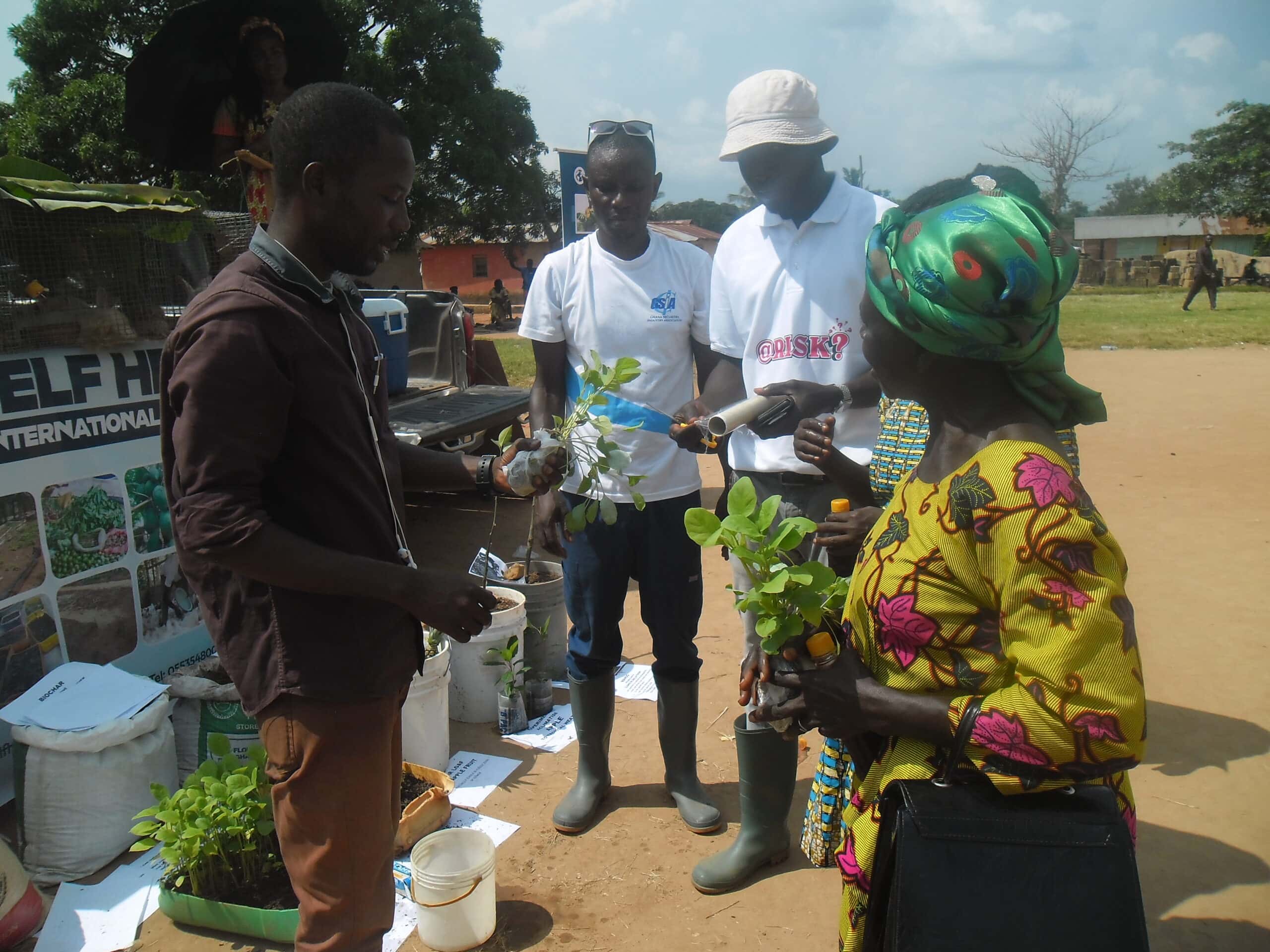 Self-Help International’s Agricultural Entrepreneurial Development (AED) program showcased its innovations in agriculture to farmers and other shareholders at last year’s District Farmers Day celebration on December 2nd at Kyereyasi in the Atwima Nwabiagya Municipal in the Ashanti Region of Ghana..
Self-Help International’s Agricultural Entrepreneurial Development (AED) program showcased its innovations in agriculture to farmers and other shareholders at last year’s District Farmers Day celebration on December 2nd at Kyereyasi in the Atwima Nwabiagya Municipal in the Ashanti Region of Ghana..
These innovations provide farmers with new technologies and information based on research and experiments carried out at its training center on soils, plants, poultry and rabbits among others to determine the optimum conditions that support high crop yields and the successful rearing of poultry and rabbits.
The AED Program also replicates scientific research undertaken by other research stations to demonstrate its efficacy to farmers and also determine the best practices necessary for the adoption and successful outcome of the research in Ghana’s agricultural environment.
The items that were exhibited included soilless medium, as well as aubergine (eggplant) and cabbage seedlings nursed in soilless medium, to educate people on how to use soilless medium to nurse and raise plants to reduce the incidence of diseases and pests.
Also on display was a sack of rice husk which is common in the Ghanaian environment and can be used for producing biochar, which is created through the controlled burning of the rice husk under low oxygen, as well as biochar compost, which as the name suggests, is biochar that has been enriched with compost.
Strawberries and tomatoes planted in used containers were also showcased in a bid to demonstrate how used containers can be used to nurse and cultivate plants.
In order to promote the rearing of rabbits, a rabbit cage fabricated with galvanized metal mesh which is both durable and hygienic was put on show to help people interested in rearing rabbits to know how best to house them.
An orange plant cloned through air layering which is a method of propagating trees and shrubs from stems still attached to the parent plant was also exhibited. The advantages of using this method of propagation is that the clones produce fruits that are identical to the parent plant and also fruit at a faster rate than plants propagated through seed.
Some of the people who visited the SHI stand left with young seedlings to plant on their own farms and gardens.
Thus, participating in last year’s Farmer’s Day celebration did not only offer SHI a chance to educate people on new ways of cultivating plants and rearing poultry and rabbits but also provided an opportunity for people to test and benefit from these innovations by utilizing improved seedlings on their farms.

